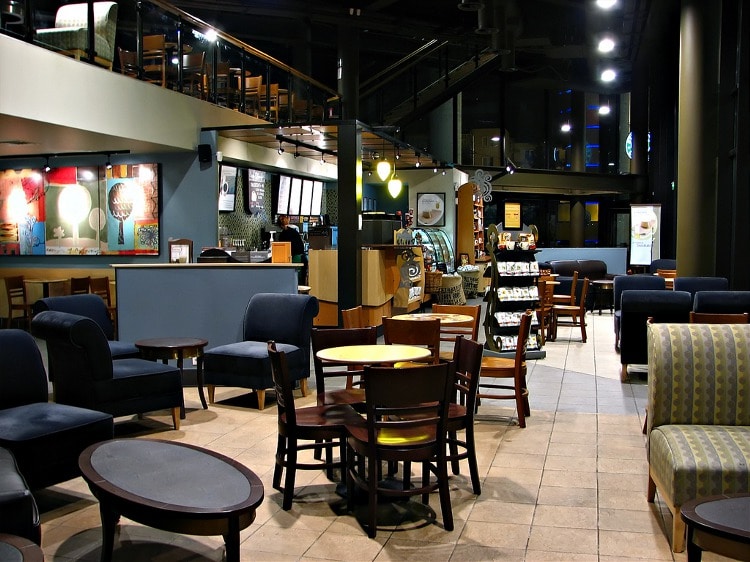How To Guides
How To Start A Coffee Shop – Some Top Tips
If you are reading this, chances are you have decided to make the leap and join the £5.3billion* coffee market in the UK and open your own coffee business. With independent coffee retailers making up 36.3% of the overall café market in 2011*, indie’s are standing shoulder to shoulder with chain shops on the high street, making 2012 a great time to assert your place in the market.
This is the first in a series of blog posts which will give you some pointers about how to go about your research when setting up your coffee shop, from business planning, to choosing an espresso machine.
First up, some crucial things to consider before you do anything.
1. Know your market.
Chances are you’ve picked a location you are interested in based on its demographic. You may be looking at a busy high street location, full of shoppers. Or you may have chosen a spot in a business district, to catch those weary, caffeine hunting office workers. Either way, it’s crucial you understand the needs of the demographic of the area you want to trade in.
What do they want? When do they want it? Having a thorough understanding of the market place will ensure you can define your menu, and get the most from your opening hours.
2. Understand the SWOTS of competition.
Understanding how competition works in the coffee industry is crucial, as, unlike some industries, coffee shops can benefit from being grouped together. It’s all a matter of understand the strengths, weaknesses, opportunities and threats (or SWOT) that they pose to your business.
3. Premises
Be careful here. The premises you choose can make or break your business. Start off too big (expensive), and you risk not being able to make your first rents. Start off too small and you may find you outgrow it very quickly, which can cause further costs along the line.
4. Budget
Often, you will need to confirm your premises and marketplace and put together a profit and loss before you can set a budget, hence why this option isn’t listed first. If your budget is very tight, this will limit your options, so it does help to have an idea of what financial plan you will be working within first of all. For example, if your budget is £20,000 there is little point looking at premises of £50,000PA rental, as landlords will often ask for a 25%-50% deposit, which will be almost impossible to work within your budget.
5. Potential Income
Once you have chosen a premises and market and assessed your outgoings, you will need to start considering your income. This is more difficult if you are starting a business from scratch. If you are buying a business, you will be given an idea of expected figures, but consequently, will pay more initially in the form of a business premium.
6. Funding
So how much does starting a café business cost? Unfortunately setting up a shop is not cheap and start-up costs typically run from between £20,000 to £100,000 depending on the size, style and location of your premises. Remember to factor in rates, refurb, furniture, fixtures, equipment, staff and food & drinks.
The key to making your money go further here is to focus on return on investment, buying only the things you absolutely need. Second-hand furniture and equipment or leasing a coffee machine is a good idea to keep costs down.
Commercial coffee machines can cost anywhere from £1,500 to £10,000, You’ll also need a coffee grinder, barista kit, knock-out drawer and possible a water softener too depending on your location. A commercial dishwasher is also very useful.
After rent, food and drinks, your staff will be your biggest outgoing. Most business owners will aim to keep staff costs to less than 35 percent of turnover. Remember don’t ignore the administrative side of your business. Make sure you understand your responsibilities for paying corporation tax, VAT, national insurance along with rent and business rates.
In terms of funding, some owners are lucky enough to amass a pot of savings to plough into starting up but what if you’re not in that position? Banks aren’t willing to lend to every entrepreneur but if you do get turned down, they must now offer to help you source alternative sources of funding. If that’s the case then you might want to look into a short-term loan. Depending on your circumstances you can borrow up to £25,000 as an unsecured loan from a number of startup specialist lenders. The financial comparison site Readies has several hundred reviews of lenders in this space so we recommend scouring the market to make an informed decision as to exactly what you can borrow and the terms involved.
We will look at ways you can assess your potential income in a later blog post. In the mean time you check out this video on the secrets of running a shop:
We hope you have enjoyed this first post, and watch out next week for the second instalment, where we will consider the importance of the USP (unique selling point).
*Source: Allegra Strategy Report ‘projectcafe11’.



